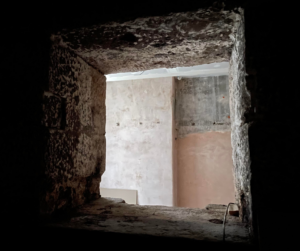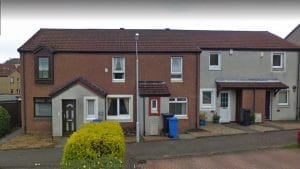So before we begin, cards on the table: I have been a fan of commercial property for a long time. Having invested in both residential and commercial, our property investment is now almost exclusively in commercial investments and whilst writing up this piece I rediscovered the reasons why it has been so good to us. Some that I had almost forgotten or taken for granted. We’ll delve into each in more depth later, but for now, here are my top five!
1. You can significantly affect Value & Cashflow
Depending on your investment strategy and whether you’re willing to roll your sleeves up, it is possible to significantly increase the cashflow, profit and end value of your commercial acquisitions in a way that just doesn’t happen with residential property investment anymore.
A major factor in the valuation of a commercial property is in the nett income..
By thinking creatively you can increase the income which in turn, will directly affect the value. By constantly seeking and trying different ways of creating new income you can boost the potential sale price. Conversely with most residential properties, the price of the five last residential sales within the immediate vicinity of your property determines the price of your investment. You might be able to add value by building an extension or creating a third bedroom, but even by adding the best fittings and finest finishings, you will still be held back by the ceiling price on similar properties in the locality.
THIS IS NOT THE SAME FOR COMMERCIAL. A major factor in the valuation of a commercial property is in the nett income. This you can affect.
Buying a property with a nett income of say £10K and increasing it to £120K is really going to affect the end value, no matter what the unit next door is valued at. To some this is might be chicken feed, but when we managed to affect this change to one of our earlier purchases it made a significant impact on our portfolio. Which leads me to the next point:
2. Leverage and Scale
Increasing your property income makes for higher cashflow, but it also increases the value of your property which can be leveraged for more purchases.
Early on I realised that because nett income affects commercial property price, increasing it could leverage more purchases at a quicker pace than we were achieving with residential. A certain momentum is gained after things begin to accelerate, this can really help you scale. There is a great trick in here to reinvestment without triggering a taxable event.
3. Pay less tax.
A huge part of investing in property is the buying price. I am sure you have heard it said that the profit is made at the start of the deal when the purchase price is agreed and not at a future exit point.
Stamp Duty Land Tax (SDLT) – Land & Buildings Transaction Tax (LBTT) in Scotland – has an increasingly significant effect on the cost of a property purchase. With the 4% additional property tax and the steeper progression of tax bands built into the residential tax scale, purchase related tax on commercial property can easily be up to 5% less. Not insignificant when trying to buy well. An additional factor is that lender finance is more difficult to find to cover those extra costs, so you have to find it.
purchase tax on commercial property can easily be up to 5% less than residential.
A little mental note though, do remember the VAT element. We were naively caught out with that one in the early days. At the time Stamp Duty went up significantly above a purchase price of £250K and we had smugly agreed a deal price of just under £250K hoping to miss the tax increase on the whole purchase price. Then we learned that Stamp Duty had to be applied to the purchase price including the VAT which at the time was 17.5%. So suddenly we were over the threshold and the government wanted to tax the tax! A costly rookie mistake!
4. The market is clear as mud!
I covered this in my last blog, but have you noticed how difficult it can be to see what is going on in the commercial property market? What is actually happening in your area, who is doing it, what is for sale, why is some stuff up for sale but nobody seems to want to sell it? Why won’t the agents ever return my calls, doesn’t anyone ever respond to offers?
The opaque nature of the industry can be very frustrating and puts lots of people off, however I think it is one of the greatest advantages of the Commercial property market. Deals are more hidden, opportunities can be easily overlooked. Agents nearly always price property by looking in the rear view mirror, of course you need to listen to their advice, but make your own decisions while facing forward. The future is not always determined by the past.
5. ROI (Return on Investment)
So, can you achieve higher ROI in commercial as opposed to residential? Absolutely! This will be affected by many factors; your overall strategy, how much time you are willing to put in and what your risk profile is. A 15 year lease to a well established brand on the high street may achieve an ROI as small as 4% whereas a 15 year lease to a small local business in a secondary location away from the town centre might achieve an ROI of around 10-12%. One is perceived as more risky than the other.
The biggest affect on ROI can be found between your ears. What can be done differently to the property? How else could the space be used? Think creatively to increase returns.
The biggest affect on ROI can be found between your ears.
Over the years our decision framework for acquisitions has changed and matured and I can say with hand on heart, one of our criteria is to only invest in properties where we can see a way to achieve an ROI of at least 30%. We know it will take investment of time and money but that possibility has to be there or we move onto the next project.
I hope you found this quick summary useful. There are plenty more reasons to invest in Commercial, to be discussed when I get around to writing part 2. In the meantime please post any comments or questions below.





